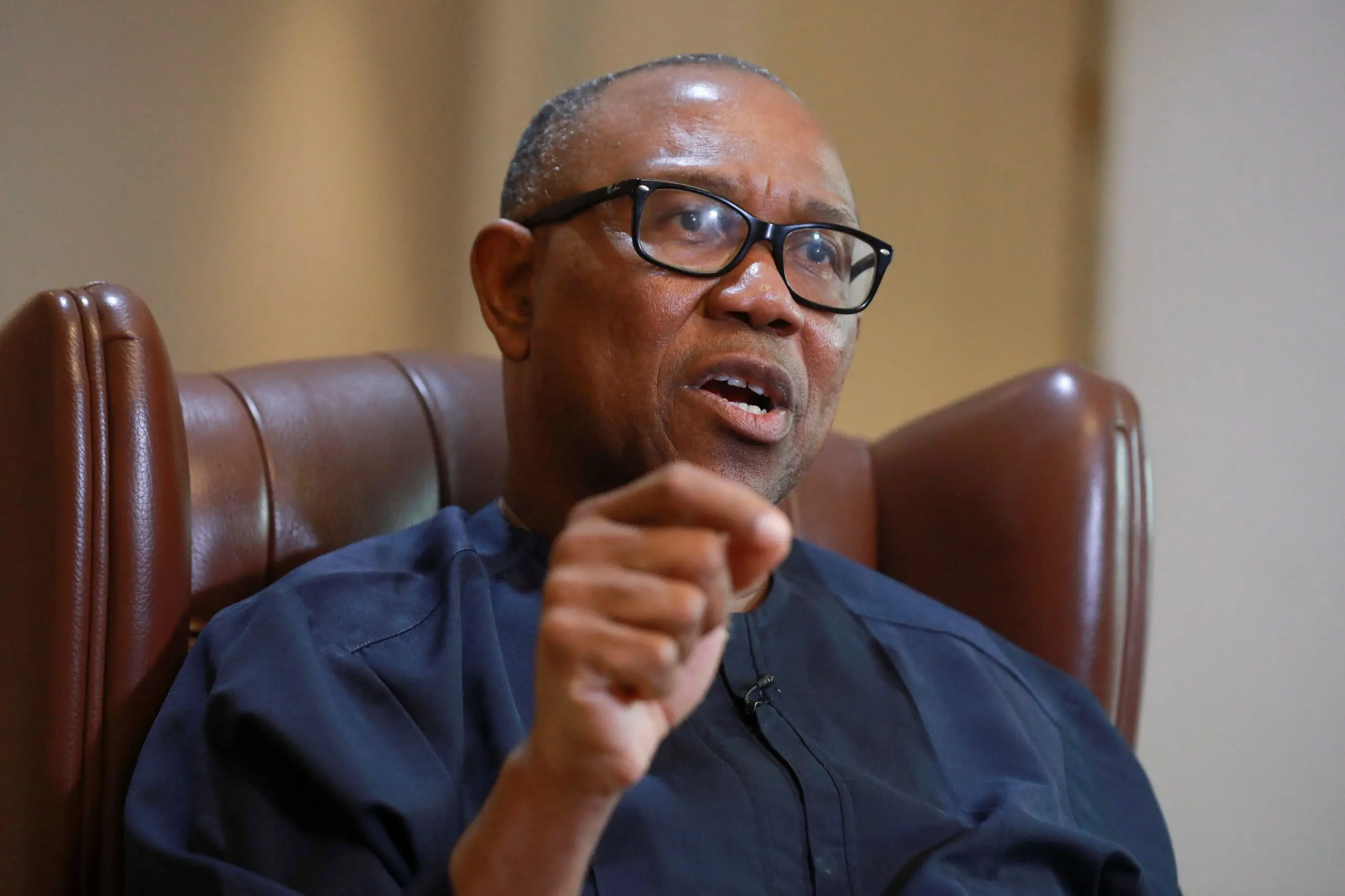
Former presidential candidate of the Labour Party (LP), Peter Obi, has criticised the federal government’s continued concentration of maritime investments in Lagos, describing it as unfair and economically limiting for other regions.
Obi’s reaction comes after the Minister of Marine and Blue Economy, Adegboyega Oyetola, announced federal approval of $1 billion for the modernisation of the Apapa and TinCan Island ports in Lagos.
Oyetola made the disclosure at the 2025 Annual Conference of the Chartered Institute of Logistics and Transport (CILT), themed “Enhancing Logistics and Transport for Sustainable Blue Economy in Nigeria”, held in Lagos.
‘Infrastructure Investment Overly Concentrated in Lagos’
In a statement released Friday via his X (formerly Twitter) handle, Obi said while he welcomes the Lagos port modernisation project, it must be implemented with accountability, transparency, and fairness.
The former Anambra State governor argued that the initiative once again exposes the imbalance in Nigeria’s maritime development, where Lagos remains the primary beneficiary of federal infrastructure spending.
“Our infrastructure investment remains excessively concentrated in Lagos, often at the expense of strategic ports like Warri, Port Harcourt, Calabar, and Onne,” Obi said.
He warned that the neglect of other ports continues to stifle productivity, job creation, and trade opportunities that could lift millions of Nigerians out of poverty.
‘Other Nations Embrace Port Decentralisation’
Drawing comparisons with other nations, Obi said countries that have embraced decentralised port development enjoy greater inclusivity and economic resilience.
“Vietnam operates over 300 ports across different regions, Indonesia has about 111 commercial ports, and South Africa runs eight major seaports from Durban to Cape Town,” he noted.
“Even Ghana, with only two ports, Tema and Takoradi, ensured they are located on opposite ends of the coastline.”
He stressed that no country seeking to maximise its blue economy potential would centralise maritime operations in a single city.
“Decentralisation improves logistics, enhances security, reduces congestion, and promotes balanced growth,” Obi added.
‘Developing Other Ports Is a National Imperative’
Obi pointed out that more than 70 percent of Nigeria’s port operations currently take place in Lagos, leading to severe congestion, high demurrage, and inflated costs that affect consumers nationwide.
He called for urgent investment in other major ports including Warri, Port Harcourt, Calabar, and Onne describing such development as not just an infrastructure upgrade, but a national economic necessity.
According to him, expanding these ports would ease pressure on Lagos, attract foreign investment, create jobs, and stimulate regional economies.
Calls for Reform and Integrity in Maritime Governance
Obi also urged the federal government to address systemic inefficiencies, tackle corruption, and deploy digital solutions to streamline operations and improve transparency across the sector.
“A truly national blue economy must carry every region along and create a seamless, paperless system that enhances turnaround time and global competitiveness,” he said.
While acknowledging the importance of the Lagos project, Obi said it should serve as a model for nationwide transformation, provided it is managed with prudence and integrity.
He concluded by urging the government to embrace fairness, equity, and vision in national development, insisting that Nigeria must transition “from consumption to production and shared prosperity.”


